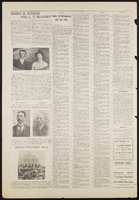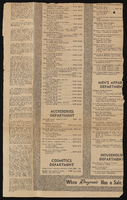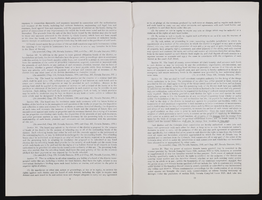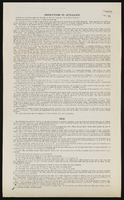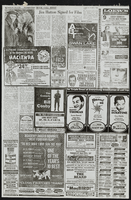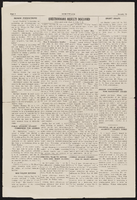Search the Special Collections and Archives Portal
Search Results

Sanje Sedera oral history interview: transcript
Date
Archival Collection
Description
Oral history interview with Sanje Sedera conducted by Kristel Peralta, Cecilia Winchell, Ayrton Yamaguchi, and Stefani Evans on April 16, 2021 for Reflections: The Las Vegas Asian American and Pacific Islander Oral History Project. Sanje Sedera discusses growing up in Sri Lanka, formerly Ceylon, with his family. He shares his educational history, moving from Sri Lanka to Darwin, Northern Territory, Australia as a high schooler to learn English before immigrating to the United States to attend Idaho State University. Sedera discusses the political unrest and civil war that took place in Sri Lanka between the Tamil and Sinhalese people, and how he grew to appreciate political activism instilled in him by his paternal grandparents. Sedera shares his employment history working as a manager for K-Mart, an opportunity that brought him to Las Vegas, as well as his entrepreneurial pursuits of owning a mortgage business and becoming a realtor. He talks about the financial crisis of 2008 that led to losing his business, his attempts to run for public office, and how he helped to form Nevada's Asian American Democratic Caucus. Sedera concludes with a discussion of his Buddhist practice and how these philosophies have shaped his life.
Text
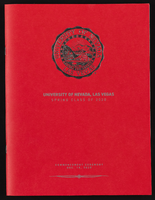
University of Nevada, Las Vegas (UNLV) Spring 2020 commencement program
Date
Archival Collection
Description
Commencement program from University of Nevada, Las Vegas Commencement Programs and Graduation Lists (UA-00115).
Text

Don Perry interview, March 05, 1978: transcript
Date
Archival Collection
Description
On March 5th, 1978, Karen Croteau interviewed Don Perry (b. 1928 in Clarksburg, West Virginia) about Paiute Indians and life on a reservation. Perry begins by mentioning his own Indian heritage with a Cherokee mother and his wife’s Paiute heritage. Perry focuses on his conversations with his wife’s grandmother, who lived on the Paiute reservation since birth, from who he learned about the reservations history. He particularly delves into the traditions of Indian burials, governing on the reservation, and the difference between an Indian reservation and an Indian colony. Additionally, he talks about recreation on the reservations, education of Paiute Indians, and how reservations have changed. Throughout the interview, Perry gives personal anecdotes about his life in connection to the Paiute people and his experiences with their traditions and belief systems. Perry ends by discussing governing politics of the Paiute reservation and the start of Las Vegas as a gambling town.
Text

Meeting minutes for Consolidated Student Senate University of Nevada, Las Vegas, January 31, 1985
Date
Archival Collection
Description
Text

